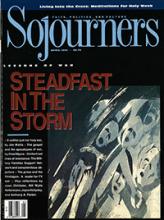"War has begun in the Middle East," Dan Rather told his viewers at 7:05 p.m. on January 16. Operation Desert Storm had begun just in time for the nightly news -- according to plan.
Some will no doubt remember this as the "CNN War" -- due to the journalistic (some will say propagandists) coup that enabled the Cable News Network to remain in Iraq throughout the Gulf war. CNN's audience reached nearly 11 million people -- almost 10 times higher than normal for the 10-year-old network, outdistancing the conventional networks in some cities and at least temporarily displacing Fox as the "fourth major network."
The news that first week saturated the airwaves and drew the undivided attention of the nation. In bars televisions that are typically tuned to sports events were transfixed on the news of the war, while offices were equipped with portable TV sets and shortwave radios. TV weather maps suddenly included Riyadh and Dhahran as well as Chicago and San Francisco.
Psychologists warned that watching too much war news could lead to what has been called the "CNN Complex" -- a kind of battle viewer (or listener) fatigue with symptoms such as insomnia and depression as well as the inability to focus on work.
"WHATEVER VIEWERS' FEELINGS about the proper U.S. policy in the Gulf, no one could complain about not having access to enough information," observed New York magazine's Edwin Diamond.
Read the Full Article
